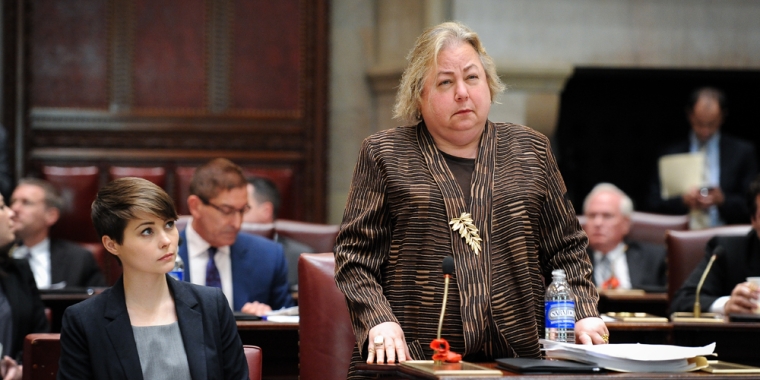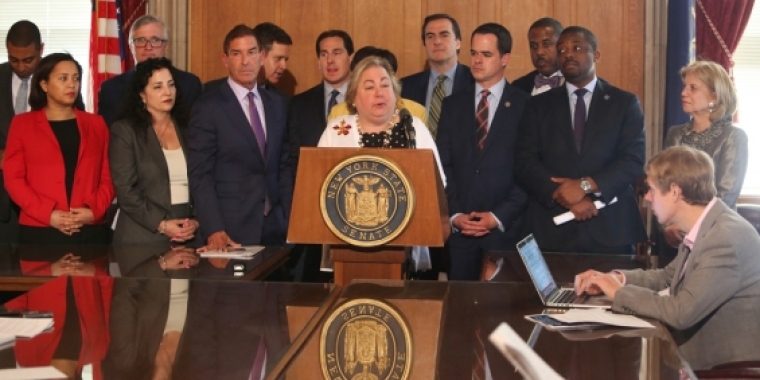
Krueger Lauds Stewart-Cousins' Groundbreaking Anti-Voter Intimidation Legislation
Liz Krueger
March 19, 2007
Albany—New York State Senator Liz Krueger is co-sponsoring four bills introduced by State Senator Andrea Stewart-Cousins, which seek to stamp out voter-intimidation leading up to Election Day.
Stewart-Cousins' drafted these measures in response to her experience from her 2004 and 2006 campaigns for the 35th State Senate seat, in which there were numerous instances of voter suppression and intimidation, including a blanket challenge to thousands of registered voters shortly before Election Day.
"Electoral crimes are nothing new. We have all heard stories of elections being manipulated, and we know these instances are not just a thing of the past but continue to happen in places all around the country," Krueger said. "But here and now we have the opportunity to show that New York is better than that, and that we have a higher standard for ourselves and our elections."
Stewart-Cousins' bills would:
Create a new electoral crime of voter suppression, punishable as a misdemeanor. Article seventeen of the Election Law contains several statutes addressing the issues of voter coercion and intimidation, but there is no specific statute that deals with the actual suppression of voters;
Increase the penalties for violations of the electoral franchise statutes contained in Article seventeen of the Election Law, with a sentence of up to one year imprisonment. In the rare instances when investigations or criminal charges are brought forth against people who have attempted to obstruct the will of the voters, the local district attorney is currently constrained by lax penalties;
Make investigations of a voter's qualifications, including residency, less intimidating and require those challenging the registrations of voters to affirm, under penalty of perjury, that the complaint is not frivolous;
Ban "push-polling" unless said poll meets strict public reporting requirements and require that scripts used be filed with election boards.
"Politics can bring out the best in people, and it can also bring out the worst. Push polls are notorious for presenting themselves as a legitimate exercise, when the motive is to mislead voters with loaded questions, and appeal to personal prejudices," Krueger explained. "Furthermore, in close elections, a frivolous challenge to a select group of voter registrations can actually determine who wins. That our electoral system is so vulnerable underscores the significance of Senator Stewart-Cousins' legislation."
"Voter intimidation can occur in a variety of ways," she said. "Many of the most common tactics are done in such a way as to leave the voter feeling personally threatened."
Besides challenging the validity of one's registration, other common forms of voter intimidation include disruptive practices at polling sites, such as tampering with one's access to voting booths, as well following voters to their vehicles and recording their license plate numbers. Armed law enforcement being stationed outside of polling sites, and the spreading of false information about one's right to vote are frequently reported examples of voter intimidation.
"The integrity of our electoral system has taken enough hits. If we don't pass Senator Stewart-Cousins' legislation then you can bet that in the next round of elections there will be voters who show up to vote and are denied this legal right, or worse yet, are afraid to show up to vote altogether. When we tell people that their vote matters it is imperative that our laws ensure their vote is not suppressed. We need our words to match our actions," Krueger concluded.
-30-
Share this Article or Press Release
Newsroom
Go to Newsroom
Rachel Levy
April 27, 2018


